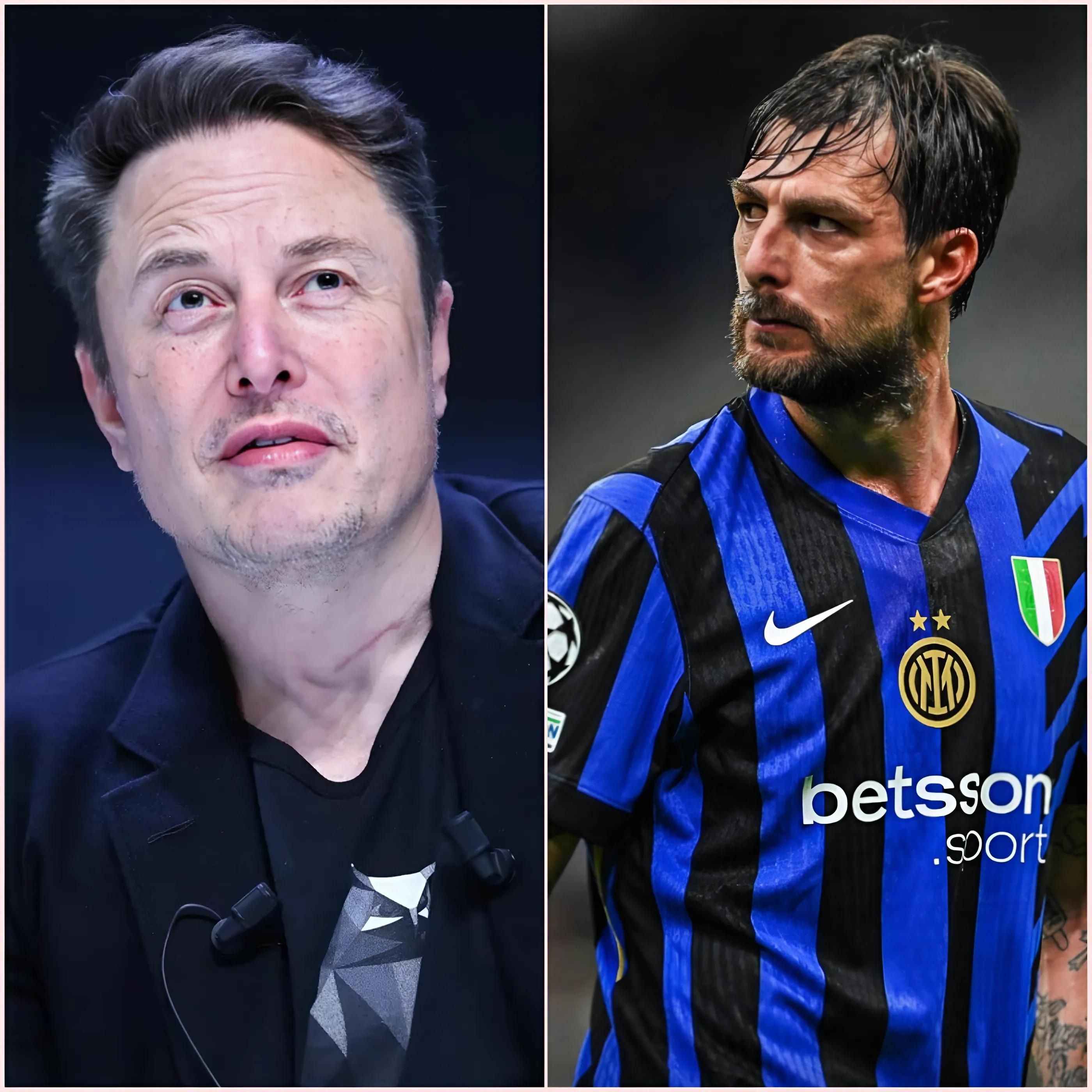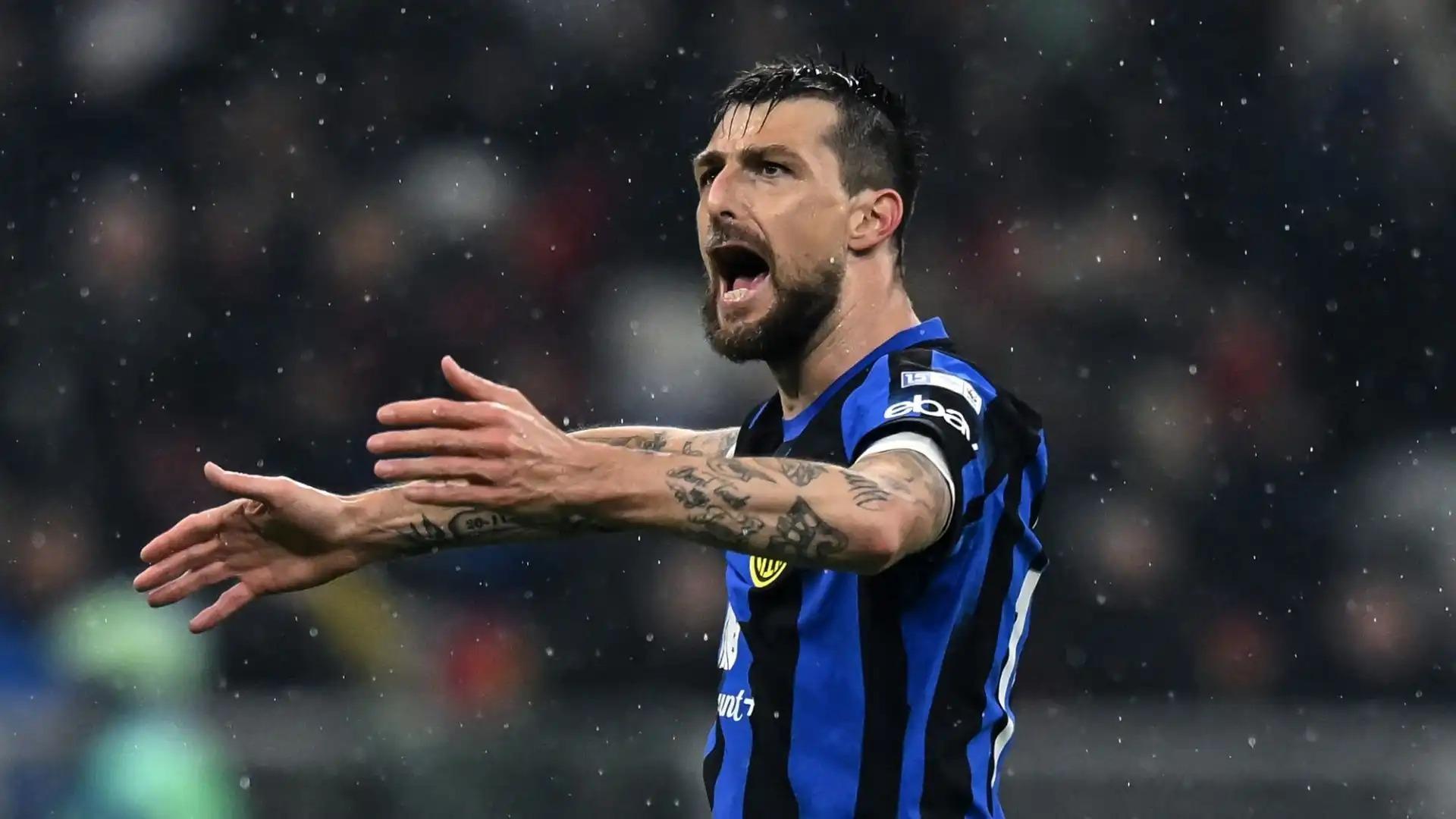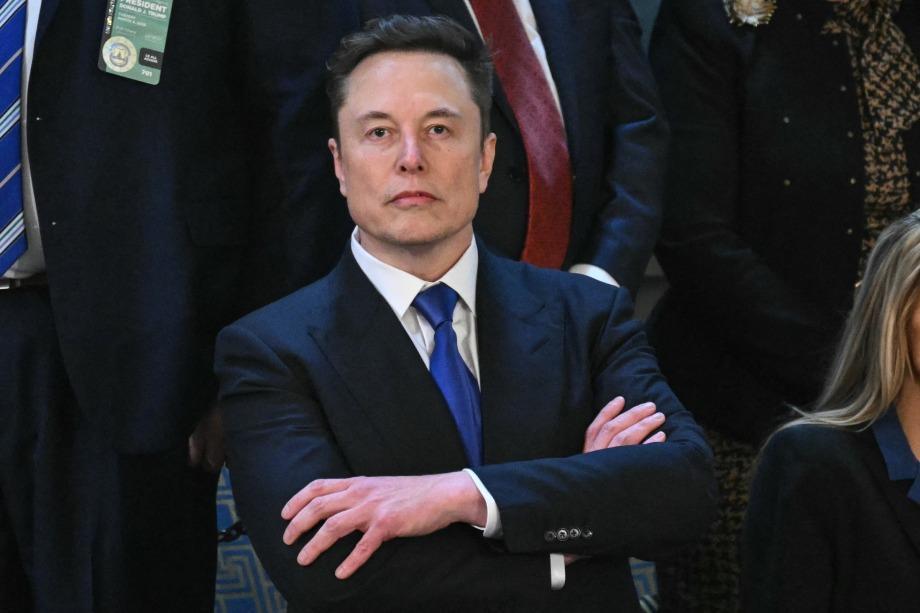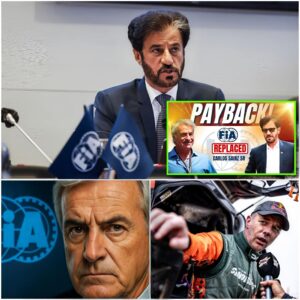5 minutes ago! Acerbi shocked the world by flatly rejecting Elon Musk’s Tesla-sponsored ad on his FIFA Club World Cup jersey. His case was so compelling that it silenced Elon Musk and shook the media worldwide…

In a surprising turn of events that has shocked the world of sports and business globally, Inter Milan star defender Francesco Acerbi has made headlines by publicly refusing to endorse Tesla’s sponsorship of his team’s jerseys during the 2025 FIFA Club World Cup. The announcement, made just moments ago, has not only caught the attention of football fans around the world, but has also left Tesla CEO Elon Musk uncharacteristically silent. Acerbi’s motives, based on a mix of personal convictions and ethical considerations, have sparked intense discussion across media platforms, with many praising the footballer’s courageous stance, while others have speculated on its wider implications.
The FIFA Club World Cup, which will be held from June 15 to July 13, 2025 in the United States, has already been mired in controversy, particularly regarding its sponsorship deals. With the tournament expanding to a 32-team format, FIFA has faced difficulties in securing sponsorship deals, as evidenced by previous disputes with longtime partners such as Adidas and Coca-Cola. These companies have filed lawsuits, arguing that their existing contracts should cover the revamped tournament. Despite these tensions, FIFA has managed to secure high-profile sponsors, including Anheuser-Busch InBev, Hisense, Bank of America and, most recently, Tesla, the electric vehicle giant led by Musk. Tesla’s addition to the sponsor roster was seen as a coup, given the company’s global brand recognition and Musk’s influence in both technology and popular culture.

Acerbi’s refusal to wear a Tesla jersey stems from his concerns about the environmental and social implications of the company’s activities. In a press conference held a few minutes ago, the Italian defender expressed his position with remarkable clarity and conviction. He cited reports questioning Tesla’s environmental impact, particularly the energy-intensive production of electric vehicle batteries and the company’s reliance on mining, which has been linked to ecological degradation and labor problems in some regions. Acerbi stressed that while he supports the transition to sustainable energy, he believes that supporting Tesla at such a high-profile tournament would send the wrong message to fans, especially younger audiences who look up to athletes as role models.
Acerbi also expressed discomfort with what he described as Musk’s “polarizing public persona.” Without going into detail, he touched on Musk’s controversial statements on various social and political issues, which have often drawn backlash. Acerbi said: “As a footballer, I have a platform and I want to use it responsibly. I cannot align myself with a brand whose leader’s actions sometimes contradict the values I hold dear.” This statement was widely echoed, with many fans and commentators applauding Acerbi for prioritizing principles over commercial interests.
The decision has put Inter, one of 12 European teams competing in the tournament, in a delicate position. The club, which recently secured a main shirt sponsorship deal with Betsson, partly thanks to its participation in the Club World Cup, must now deal with the consequences of Acerbi’s stance. While Inter have yet to issue an official statement, sources close to the club suggest they respect Acerbi’s decision but are working to ensure they meet FIFA’s sponsorship requirements, which require clubs to field their strongest squads and honor commercial agreements.

Elon Musk, known for his witty and often combative responses on social media, has remained remarkably silent since the news broke. This lack of reaction has only fueled speculation, with some suggesting that Musk is reassessing Tesla’s involvement in the tournament, while others believe he is simply biding his time before responding. The global media, however, has not been so restrained. News outlets from Europe to North America have described Acerbi’s move as a bold stand against the commodification of sports, while others question whether it could set a precedent for athletes to challenge sponsorship deals on ethical grounds.
The broader implications of Acerbi’s decision are profound. It raises questions about the role of athletes in shaping the narrative around corporate sponsorship, especially in an era when brands wield significant influence over sport. The FIFA Club World Cup, already under scrutiny for its commercial and logistical challenges, now faces additional pressure to address the concerns raised by Acerbi. For fans, this moment underscores the power of individual action in a highly commercialized industry, while for sponsors like Tesla, it serves as a reminder that their involvement in sport is not exempt from scrutiny.
As the tournament approaches, all eyes will be on how FIFA, Inter, and Tesla will address this unprecedented situation. Acerbi’s bold move has not only redefined his legacy, but has also sparked a global conversation about ethics, responsibility, and the intersection of sports and corporate influence. Whether this will inspire other athletes to take similar stances remains to be seen, but for now, Acerbi’s decision is a powerful statement in the world of soccer.





